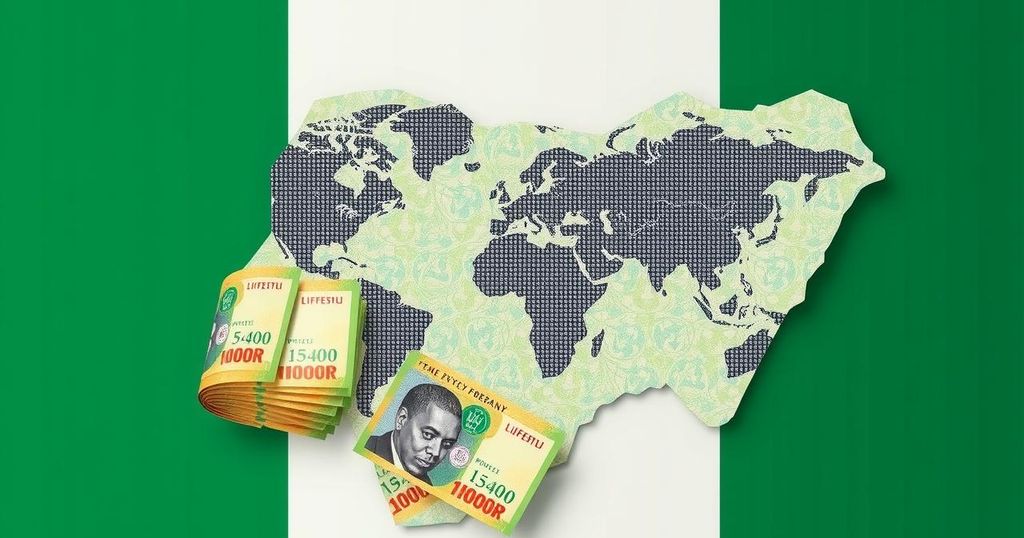Nigeria’s currency reforms under President Bola Tinubu, particularly the floating of the naira and removal of fuel subsidies, have led the naira to become one of the most competitive currencies in two decades, according to World Bank chief economist Indermit Gill. Despite facing challenges such as rising poverty and civil unrest, Gill encourages the nation to remain committed to these reforms for long-term economic transformation, while also advocating for short-term protections for vulnerable populations.
Under the leadership of President Bola Tinubu, Nigeria has initiated significant currency reforms that have positioned the naira amongst the most competitive currencies in the last two decades, according to Indermit Gill, the World Bank’s chief economist. The strategy to float the naira alongside the elimination of fuel subsidies has been crucial in averting a fiscal collapse. Despite the negative implications of naira devaluation, including heightened poverty and risks of civil unrest, Mr. Gill urges the nation to persist with these reforms. The elimination of fuel subsidies and the decision to float the naira were pivotal in enhancing its competitiveness. Previously, the official exchange rate was under NGN500 per dollar compared to an approximate parallel market rate of NGN900. Although the naira continues to experience depreciation against major currencies—an occurrence that has intensified poverty and led to concerns of civil disturbance—Gill considers the current exchange rate as a significant opportunity for Nigeria’s private sector to thrive. Gill further stressed that the ongoing reforms represent just the onset of a longer journey towards economic transformation, suggesting that Nigeria will require sustained efforts over the next 10 to 15 years. He reiterated the arduous nature of these reforms but emphasized the potential rewards. To mitigate the impact of these reforms on the most vulnerable populations, Gill also advocated for the expansion of social safety nets, which could be funded through savings accrued from the phasing out of fuel subsidies.
The context of this article centers on the economic reforms undertaken in Nigeria, particularly with regards to the currency known as the naira. The reforms were launched by President Bola Tinubu’s administration after significant economic challenges faced by the country. The decision to float the naira is a strategic move aimed at fostering a more competitive currency that aligns with market dynamics. However, these reforms have also invoked concerns over poverty and civil unrest, leading to a complicated economic situation that policymakers must navigate carefully.
In conclusion, the currency reforms led by President Tinubu have positioned the naira as a competitive force in the international market for the first time in two decades. While these changes have introduced both opportunities and challenges—most notably rising poverty levels—World Bank officials advocate for the continuation of these reforms. The emphasis on long-term economic transformation, coupled with the necessity to safeguard vulnerable populations, highlights the multifaceted approach required for Nigeria’s economic resilience and growth.
Original Source: news.bitcoin.com






